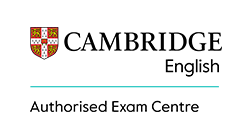Are you as a school leader using the most effective and reliable observation process?
Well, your observation techniques might often lack requisite skulls and clarity of purpose that might have an impact on how you support the improvement of your teachers. As school leaders you have always implied the knowledge you have acquired from your predecessors with little to no formal training. As a result, observational feedback is not fruitful and some teachers don’t even receive the developmental feedback they require to improve. If you stick to replicating the process you have learned, you will hinder the development of other teachers under your care.
Why Classroom Observations Are Necessary?
The discourse surrounding classroom observation has changed dramatically in the past ten years. There are now a plethora of methods, rationales, and procedures for observing other teachers, ranging from formal and informal observations to appraisal and inspection.
Here are some good reasons why school leaders must spend some time observing teaching and learning:
- Examining specific classrooms or student groups to gain more insight into the reasons behind some students' below-grade performance.
- Keeping an eye on the application of professional learning to decide on modifications and next steps for coaching and professional development.
- Observing instruction to give teachers focused feedback on their specific areas of professional interest.
- Understanding proper utilization of an assessment framework to formatively or summatively assess the performance of teachers.
- Acquiring knowledge from fellow leaders to establish a shared understanding and vocabulary for superior teaching.
The process's quality as well as the observer's expertise and experience can all have a significant impact on how well an observation is conducted. The quality of the observation generally improves with the knowledge and experience of the observer, and will always differ because no two observers will ever have the same background or degree of expertise.
Hey, do you follow us on Social Media? We regularly share upgraded educational content, tips, feedback and more. Check us out by clicking the profiles here - Facebook / Twitter / LinkedIn / Pinterest / Instagram / YouTube
Ways To Improve Classroom Observations
If you are not sure about how to conduct classroom observations effectively, here are some ways to do so:
1. Observe The Core
Always seek to understand how the teacher's pedagogical expertise and content knowledge relate to the learning task and student engagement. Knowing each of these dynamics both separately and in connection to one another is essential to pinpointing the precise ways in which instruction affects student learning.
This can be accomplished by:
- Making an effort to comprehend the work that the students are doing. After which you need to take into account its relevance to the students, its relationship with the local standards, and its relationship with students' past and future learning.
- Keeping track of student involvement, including the number of involved students and their degree of ownership over their education.
- Keeping a close eye on the instructor's comprehension of the material and how pedagogy either facilitates or impedes student learning.
2. Gather Descriptive Data
Your time in the classroom is essentially an activity of gathering evidence. You need objective, descriptive, and unbiased data to work with, regardless of whether it will be shared with teachers, used to plan professional learning, or entered into your teacher evaluation system.
3. Be Curious
A leader should become very interested in learning more about what they are witnessing and what is causing it, as the data they gather provides a wealth of information. Curiosity about things like the teacher's vision and the teacher's intent replaces subjectivity and hasty judgments in the eyes of expert observers.
4. Identify The Strengths
People develop from their strengths rather than their weaknesses. You will never be able to understand and support your teacher fully if you are always finding faults in the. Thus, while observing make sure to focus on their strengths and pick the good parts. See what innovation they brought to a lesson, or student engagement lesson delivery, etc. If you concentrate on being unbiased and inquisitive, you can be a great observer.
5. Take Actions To Improve Teaching Practice
There isn't a purpose to be in a classroom at the end of the day, or the class period, unless you plan to use the information you gather. These may consist of:
- giving educators focused feedback.
- recognizing patterns to guide future research or professional development.
- modifying professional development according to observations.
How Training Can Improve Classroom Observation?
It is possible to greatly increase the quality of observations with careful preparation and training. This can be accomplished by giving observers high-quality instruction and assistance, implementing more stringent procedures for observation, and setting clear guidelines for the observation procedure.
You can also experiment by imitating other leaders to enhance the observational skills of the observers. You can make trustworthy and help them with graded decisions about what kind of feedback to give. High-stakes scenarios can also be shown now and then. This is the situation where you have to evaluate a teacher in front of other school administrators. In those less-than-ideal situations, you have to put a lot of effort into providing insightful performance feedback rather than worrying about how the teacher will take your feedback.
Ready To Observe Your Teachers?
Providing teachers with developmental feedback should be the primary goal of quality observations, not assigning grades or passing judgment. On the other hand, stricter processes for observation, well-defined expectations for the process, and high-quality training and support for observers can all enhance the caliber of observations. For starters, you can pursue a Master of Arts in Education with Leadership and Administration to be a better and more supportive school leader.
We believe education should be accessible for everyone. That’s why we don’t charge for our blogs. Find the right course that will help you in your career with us, contact us at - 6292150868. You can mail us at act@asiancollegeofteachers.com









